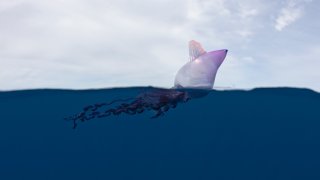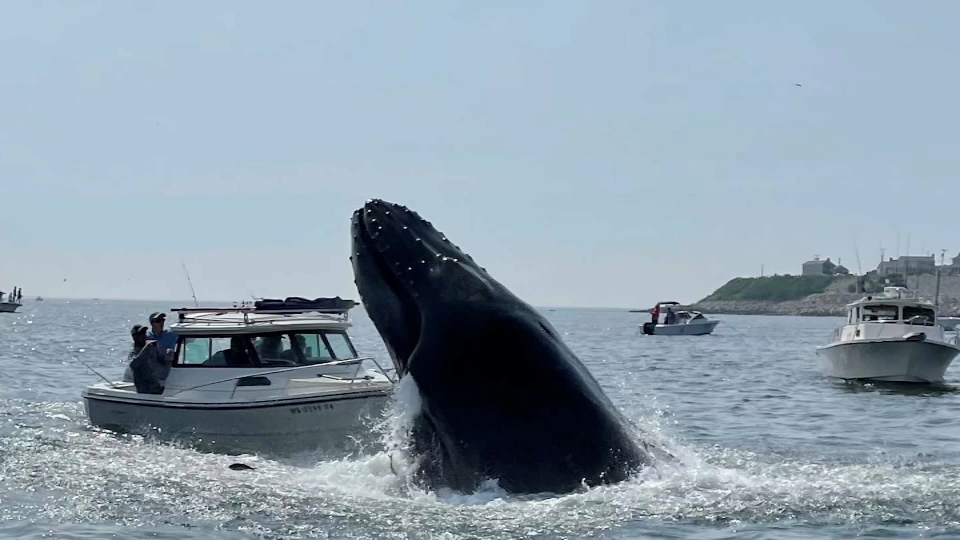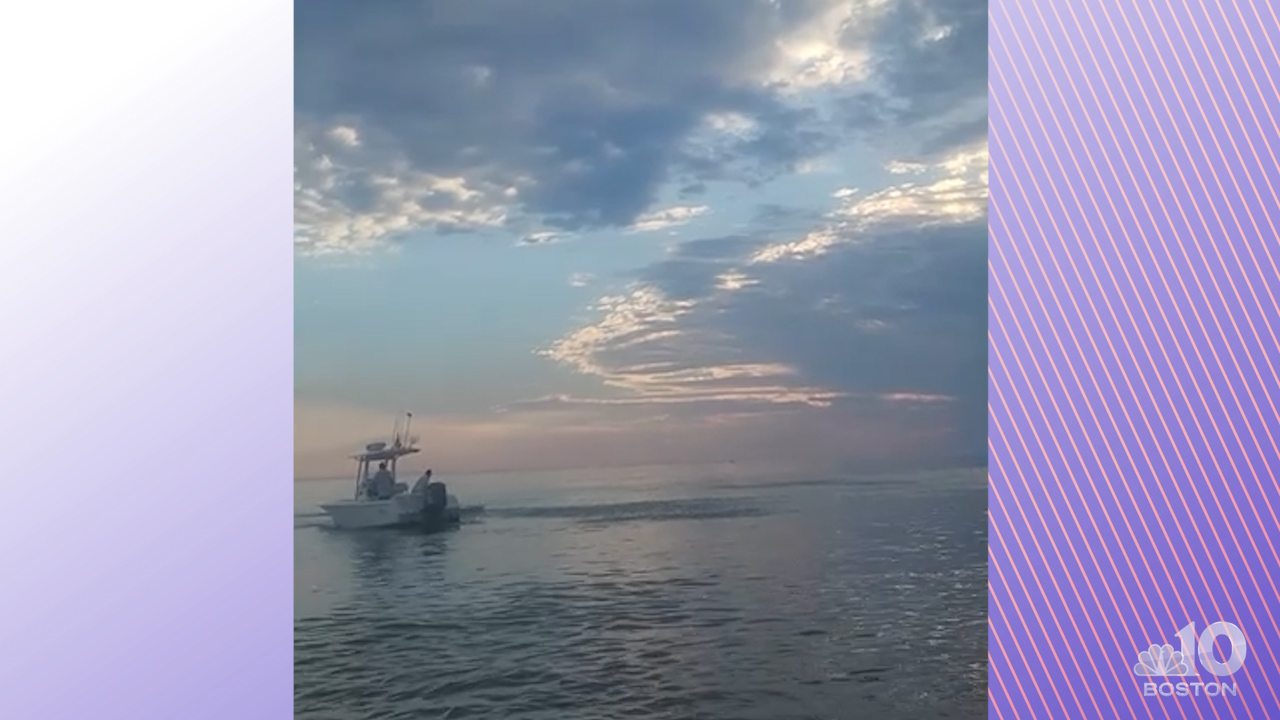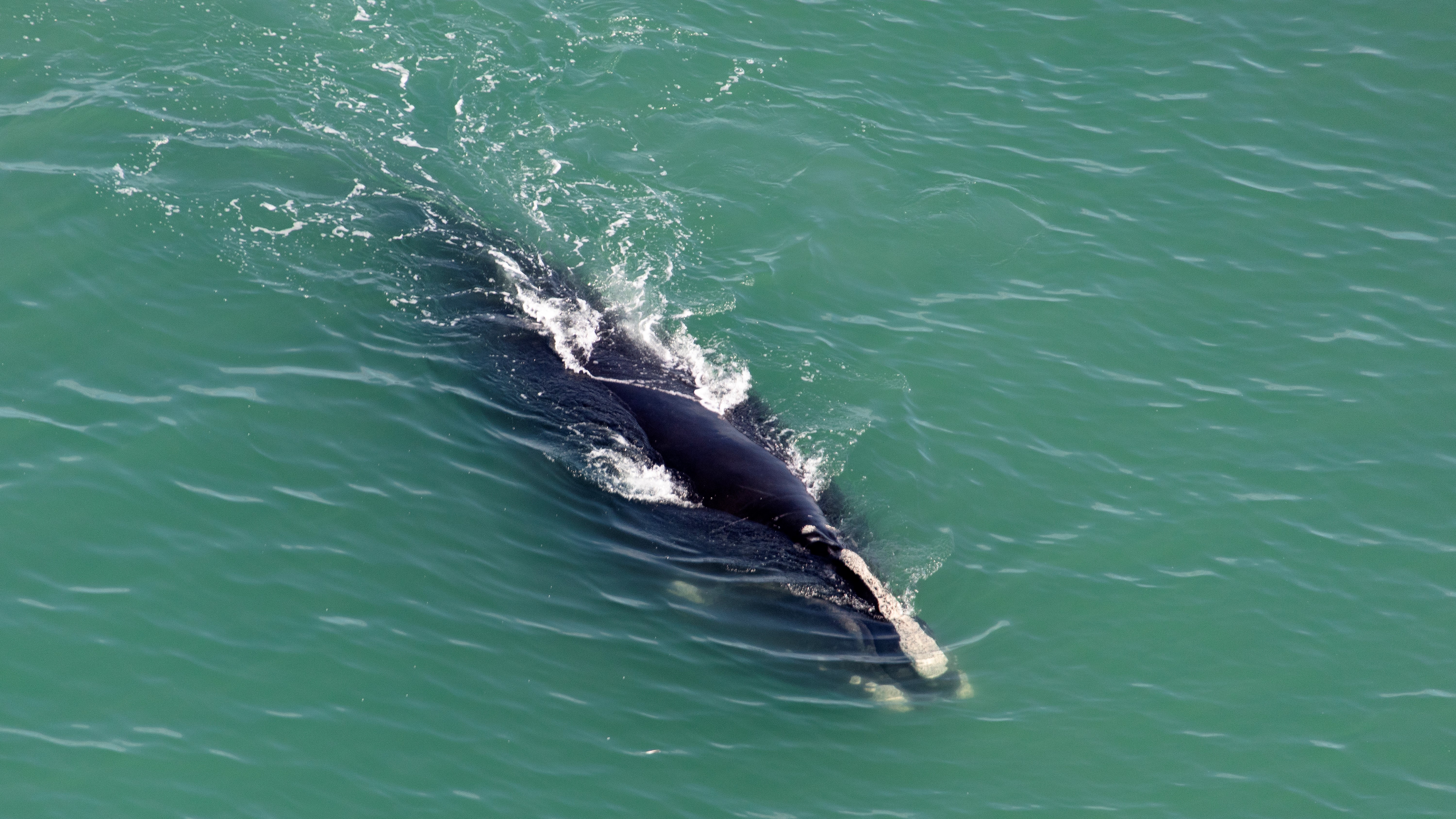
The water at Horseneck Beach State Reservation in Westport, Massachusetts, was closed Monday after a Portuguese man o' war sighting paired with dangerous rip currents, the state Department of Conservation and Recreation said.
Portuguese men o' war are closely related to jellyfish. While they don't normally target people, stings are very painful, can cause welts and in some rare, extreme circumstances can be fatal, according to the National Oceanic and Atmospheric Administration. They can be recognized by a balloon-like float, typically blue, violet, or pink, that will show above the water. Its underwater tentacles can reach 100 feet and are used to sting, paralyze and kill small fish.
Its name comes from the resemblance to an 18th-century Portuguese warship. Men o' war are more commonly found in tropical and subtropical water, but currents can take them very far, NOAA said.
They are capable of stinging weeks after washing ashore, making them dangerous for beachgoers even out of the water.
Get Boston local news, weather forecasts, lifestyle and entertainment stories to your inbox. Sign up for NBC Boston’s newsletters.
The parking lot and beach at Horseneck remain open to the public, and the water is expected to reopen Tuesday, officials said. Visitors are reminded to listen to any instructions from lifeguards or DCR staff.




